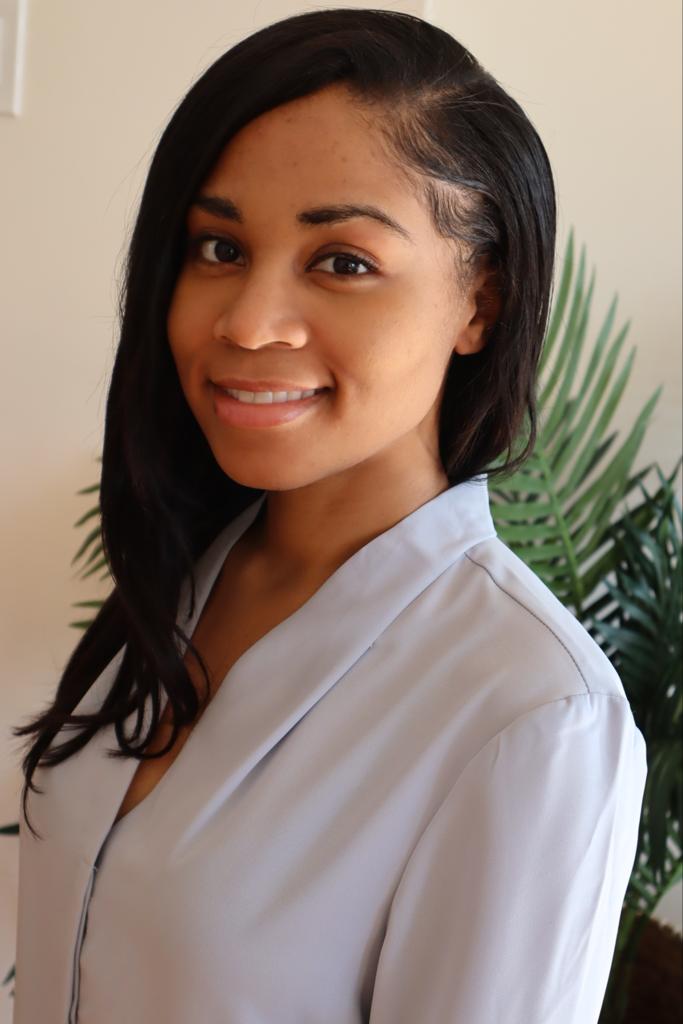Early in her career as a pediatric nurse, Chantal Campbell was lucky to have nursing leaders recognize her potential. Their thoughtfulness and mentorship, including those who she says saw her spark, prompted her to consider her own leadership skills as a part of her nursing identity and helped her to explore new career options.
Choosing to move beyond the bedside, Campbell worked as an Interprofessional Education Specialist at the Hospital for Sick Children (SickKids) for two years before going on parental leave. In this new role, she was responsible for mentoring and preparing new nursing staff. She was drawn to this position she says, because she recognized the impact that this role in nursing education could have on new nurses entering the profession.
“It’s a sensitive time for new nurses, it’s when they are forming their identity and figuring out if this profession is really for them. Positions in nursing education are so important for retention, and having the opportunity to meet brand new nurses, and nursing students on placement so early in their career, allows me to offer insights and provide mentorship,” says Campbell.
As an alum of the Lawrence Bloomberg Faculty of Nursing, Campbell has directed her passion for sharing advice and mentoring new nurses into her engagement with the Faculty, through the Alumni-Graduate Student Mentorship program. Being a mentor, Campbell says is a two-way street filled with opportunities for mutual exchange and knowledge building.
“I learn so much from my mentees, there are things they are experiencing as a nursing student now, that even just a few years ago, I never did, and it is important to have this context and understand their challenges as they enter the profession,” says Campbell.
As a nursing student, Campbell recalls being inspired by alumni who came to speak in classes, sharing their success stories and challenges. It gave her hope, she said, because she saw herself in those mentors and alumni. Their journey and experiences helped her to stay motivated and passionate about what her own nursing career could look like.
“I wanted to give that sense of inspiration back to students once I graduated,” says Campbell. “Having mentors helped me go after certain roles and believe in myself, and I wanted to foster that same supportive environment as part of the alumni community.”
Mentorship, Campbell adds, is important in the nursing profession because it provides a sense of continuity. Nursing leaders giving a hand to those coming after them, and providing that support is how innovation happens in what is often seen as both a rewarding but challenging profession.
“Nurses really do put a lot of themselves into their roles and put themselves second to their patients and their families. We are the ones that patients remember when they leave our care, and so that does give you a sense of meaning and purpose, but it is also still a challenging profession,” says Campbell.
Mentorship, says Campbell, helps her to take care of future nurses, and fills her cup. Being a mentor in Bloomberg Nursing’s Alumni-Graduate Student Mentorship program, is not transactional she says, she does it because it is important for nurses to know they have someone in their corner.
“We all need mentors; we all need that help finding our spark and finding ways to let that shine.”
Feeling inspired by Chantal’s story? Early applications are now open to become a mentor in our Alumni-Graduate Student Mentorship Program. Learn more by visiting our Mentorship Program webpage or emailing Jade Shortte, Alumni Relations Officer, at jade.shortte@utoronto.ca.
